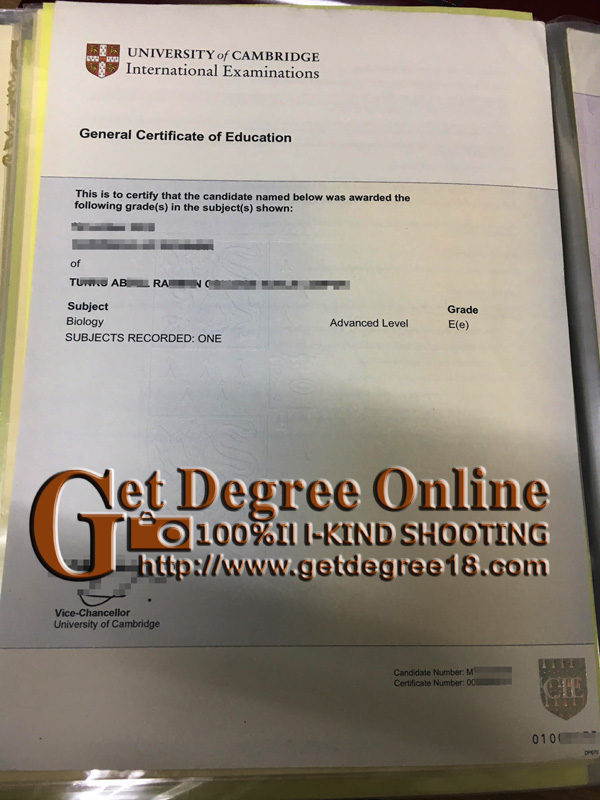buy University of Cambridge CIE GCE certificate, buy GCE A Level certificate

buy University of Cambridge CIE GCE certificate, buy CIE certificate, buy fake certificate in UK, buy fake University of Cambridge CIE GCE, The A Level (Advanced Level) is a subject-based qualification conferred as part of the General Certificate of Education, as well as a school leaving qualification offered by the educational bodies in the United Kingdom and the educational authorities of British Crown dependencies to students completing secondary or pre-university education. A number of countries, including Singapore, Kenya, Mauritius and Zimbabwe have developed qualifications with the same nameas and a similar format to the British A Levels. Obtaining an A Level, or equivalent qualifications, is generally required for university entrance, with universities granting conditional offers based on grades achieved.
Normally, students take between 3 and 5 A Levels in their first year of sixth form, and most cut back to 3 in their second year. This is because university offers are normally based on 3 A Levels. Unlike other level 3 qualifications such as the International Baccalaureate, A Levels have no specific subject requirements, so students have the opportunity to combine any subjects they wish to take. However, students normally pick their courses based on the degree they wish to pursue at university: most degrees require specific A Levels for entry, such as A Level Mathematics for a Mathematics degree.
A Levels are generally worked towards over two years. Between 2015 and 2018 (first assessment Summer 2017), new style linear A Levels were introduced in England as part of the government's educational reforms (initially across 13 subjects), replacing older modular courses where exams could be taken at several points during the course. Instead, reformed A Levels are taken at the end of the course as a set of terminal exams, and are no longer separated into units. There is less emphasis on coursework, and students must resit all exams if they wish to resit the qualification. Additionally, the AS Level is now a separate qualification and is not required for an A Level award, although it still encompasses the first year of the full A Level content. Controversially, various A Level courses have been abolished from 2017 as part of these reforms, including Archaeology, Creative Writing, Critical Thinking and General Studies among several others.
In legacy modular courses (last assessment Summer 2019), A Levels are split into two parts, with students within their first year of study pursuing an Advanced Subsidiary qualification, commonly referred to as an AS or AS Level, which can either serve as an independent qualification or contribute 50% of the marks towards a full A Level award. The second part is known as an A2 or A2 Level, which is generally more in-depth and academically rigorous than the AS. The AS and A2 marks are combined for a full A Level award. The A2 Level is not a qualification on its own, and must be accompanied with an AS Level in the same subject for certification. Due to the fact that AS Levels are considered less academically rigorous, the A* grade is reserved for those taking the subject to A2 standard, so only A2 units contribute to this grade. Additionally, students who are displeased with results from their AS units have the ability to resit. However, this has been widely criticised as nurturing a 'resit culture' and causing perceived 'grade inflation'.


